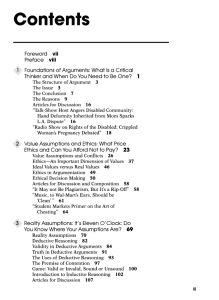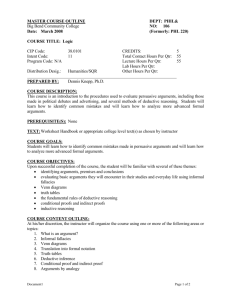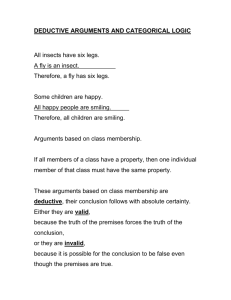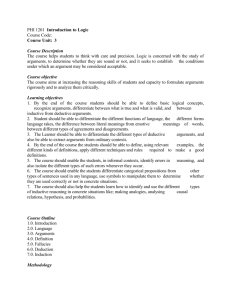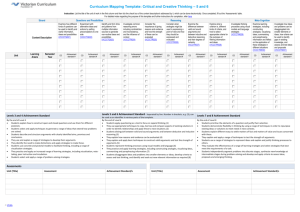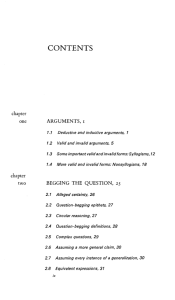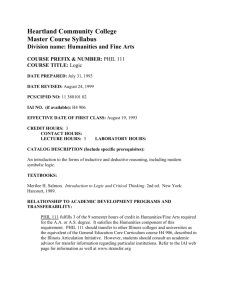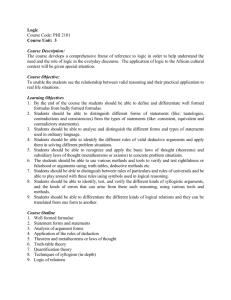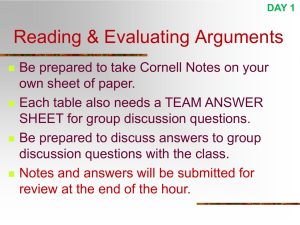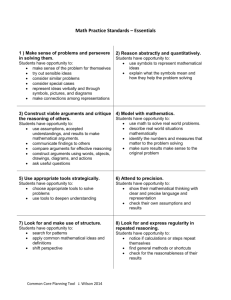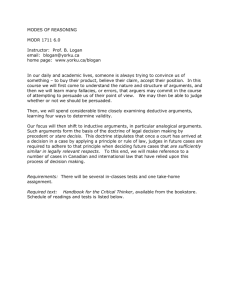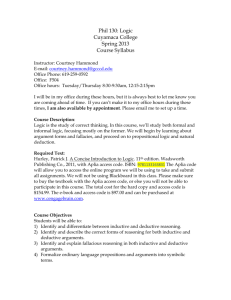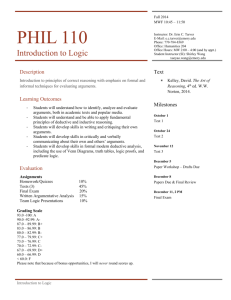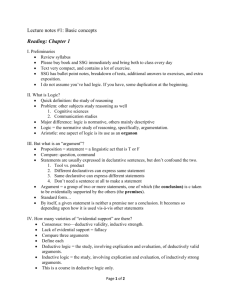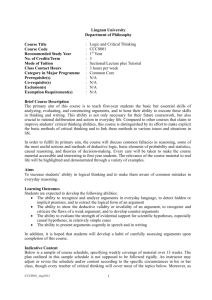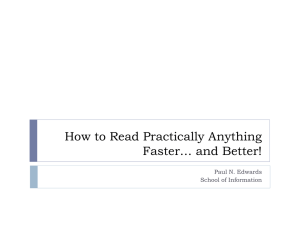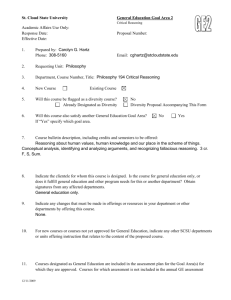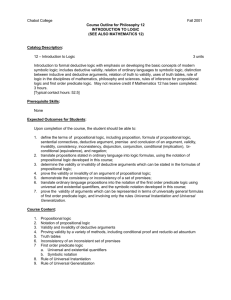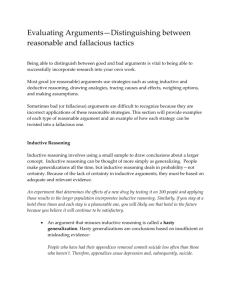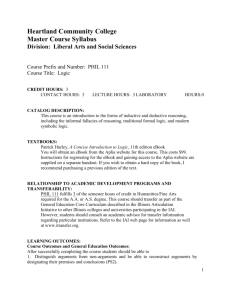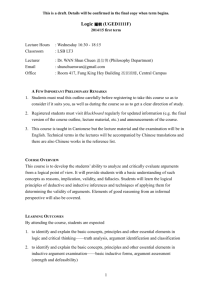PHIL111_Nov2013 - Heartland Community College
advertisement
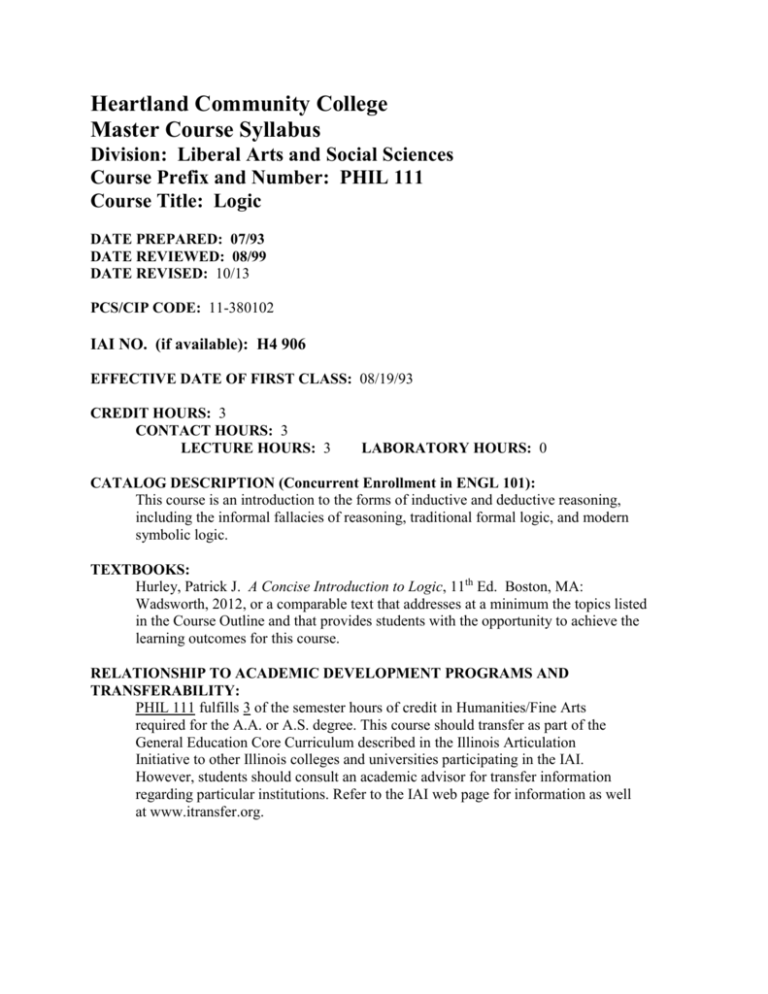
Heartland Community College Master Course Syllabus Division: Liberal Arts and Social Sciences Course Prefix and Number: PHIL 111 Course Title: Logic DATE PREPARED: 07/93 DATE REVIEWED: 08/99 DATE REVISED: 10/13 PCS/CIP CODE: 11-380102 IAI NO. (if available): H4 906 EFFECTIVE DATE OF FIRST CLASS: 08/19/93 CREDIT HOURS: 3 CONTACT HOURS: 3 LECTURE HOURS: 3 LABORATORY HOURS: 0 CATALOG DESCRIPTION (Concurrent Enrollment in ENGL 101): This course is an introduction to the forms of inductive and deductive reasoning, including the informal fallacies of reasoning, traditional formal logic, and modern symbolic logic. TEXTBOOKS: Hurley, Patrick J. A Concise Introduction to Logic, 11th Ed. Boston, MA: Wadsworth, 2012, or a comparable text that addresses at a minimum the topics listed in the Course Outline and that provides students with the opportunity to achieve the learning outcomes for this course. RELATIONSHIP TO ACADEMIC DEVELOPMENT PROGRAMS AND TRANSFERABILITY: PHIL 111 fulfills 3 of the semester hours of credit in Humanities/Fine Arts required for the A.A. or A.S. degree. This course should transfer as part of the General Education Core Curriculum described in the Illinois Articulation Initiative to other Illinois colleges and universities participating in the IAI. However, students should consult an academic advisor for transfer information regarding particular institutions. Refer to the IAI web page for information as well at www.itransfer.org. LEARNING OUTCOMES: Course Outcomes and General Education Outcomes: After successfully completing the course students should be able to 1. Distinguish arguments from non-arguments and be able to reconstruct arguments by designating their premises and conclusions (PS2). 2. Identify deductive and inductive arguments and recognize the most common forms of deductive and inductive arguments (PS3). 3. Classify arguments as to their validity and soundness (deductive arguments) and strength and cogency (inductive arguments) (PS2). 4. Recognize and avoid using common informal fallacies of reasoning (CT2). 5. Utilize one or more of the main methods, including visual representation, in traditional logic to determine validity, e.g., counterexamples, the square of oppositions, Venn diagrams, and the rules of the syllogism. (PS4). 6. Translate statements and arguments into symbolic form in propositional logic. 7. Evaluate the validity of arguments in propositional logic by means of truth tables (PS2). 8. Exhibit responsibility for learning by interacting with others in class discussions and in small groups to solve logical problems (CO1, CO2). Range of Assessment Methods: Assessment methods might include but are not limited to examinations, quizzes, papers, informal writings, oral presentations, debates, and class participation. COURSE/LAB OUTLINE: 1. Introduction to Deductive and Inductive Reasoning 2. The Fallacies of Reasoning 3. Traditional Syllogistic Logic 4. Propositional Logic and Truth Tables METHOD OF EVALUATION (Tests/Exams, Grading System): Instructors may determine the most appropriate methods of evaluation for their course. These methods of evaluation might include but are not limited to examinations, quizzes, papers, informal writings, oral presentations, debates, class participation, and attendance. Grades will be determined by the following scale: 90-100% A 80-89% B 70-79% C 60-69% D Below 60% F REQUIRED WRITING AND READING: The number of pages to be read per week will average between 15 and 30 pages, but because of the difficulty of philosophical reading, most readings will need to be read at least twice. The amount of writing done in this course will vary across instructors, but, in fact, the bulk of students’ work will involve solving logical problems by recognizing, reconstructing, categorizing, and evaluating arguments, determining their validity or strength, creating visual or symbolic representations of them, etc. (Estimate is based on a 16 week course schedule. Please note if your class is not a 16 week class your weekly reading assignment will be increased.)
